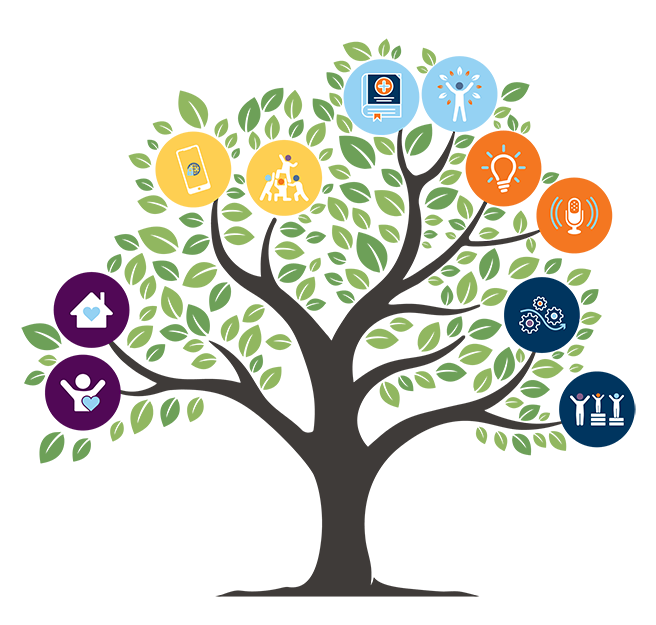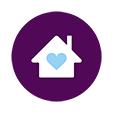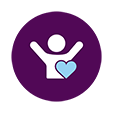Adolescent Health Gateway
The Minnesota Partnership for Adolescent Health
Positive Connections with Supportive Adults
Go to: Essential Themes and Priority Areas

Young people thrive and flourish when they are surrounded by caring and nurturing relationships with supportive adults (parents, caregivers, elders, grandparents, neighbors, tribal members, coaches, teachers, mentors, and more). Youth need a circle of people who listen, provide expectations, support, and guidance.
The Minnesota Partnership for Adolescent and Young Adult Health recognizes the need to increase the capacity of adults to build supportive relationships with young people and the critical role of families and caregivers.
Families and Caregivers

Strengthen the capacity of families and caregivers to provide the supportive foundation for young people’s health and wellbeing.
The family plays a significant role in nurturing the health and wellbeing of young people. Yet, the critical supports for parents and adolescents are lacking. The goal of this priority is to support strong, stable families and caregivers. The action steps focus on strategies that reach out to parents and other caregivers to develop strong families from birth through adolescent hood and into young adulthood.
Action Steps
Provide opportunities for parents and caregivers of young people to sharpen parenting skills and gain support from each other
- Create an adolescent version of Early Childhood and Family Education (ECFE) program
- Direct families to medically accurate information and resources on adolescent health and development
- Include a parent or caregiver component in health programs for young people
- Support teen parents as both developing young people and parents
- Advocate and promote family-friendly policies
Minnesota Responses and Resources
It’s That Easy
Designed for professionals who work with parents/caregivers of children ages birth to 18, this training provides tools and techniques to engage parents in developmentally appropriate approaches to raising sexually healthy children. Participants receive the It’s That Easy manual, a comprehensive guide to help professionals work with parents. Learn more at It's That Easy! – A Guide To Raising Sexually Healthy Children
National Resources
- Information for Parents with Teens (Ages 12-19) | CDC
- Parents - amaze
- MIT Raising Teens
- Prevention & Early Action - Partnership to End Addiction
- Positive Parenting Practices | DASH | CDC
- Welcome to the Family Acceptance Project® | Family Acceptance Project ®
Adults Who Understand

Educate adults about adolescent health and development
Caring adults who understand young people and their development play an important role in guiding and supporting young people through adolescenthood. These are adults who “stick” with young people through thick and thin. The goal of this priority is to support adults who work with or make decisions about youth to routinely create and surround young people with caring relationships. The actions steps focus on training these adults in adolescent development, positive youth development, and the foundations of health.
Action Steps
- Partner with young people to train adults about adolescent health issues
- Include adolescent development and the importance of supportive relationships in adult professional education
- Improve higher education programs for professionals who work with young people to include a focus on adolescent health and development (e.g., health, public health, social work, psychology, education, law enforcement, etc.)
- Make supportive relationship with young people a central goal of youth programs
- Collect and share best practices on building supportive relationships with young people
Minnesota Responses and Resources
Youth Intervention Programs Association (YIPA)
A Minnesota-based nonprofit agency established in 1984, YIPA provides training for everyone who supports young people. YIPA trainings are convenient, flexible, and targeted to the fundamental skills needed to build trusting relationships that support positive youth development. YIPA’s complete suite of learning resources help youth workers keep going, learning, and growing. YIPA believes youth work is social justice work, and their mission is rooted in equity. Learn more at Youth Intervention Programs Association (YIPA)